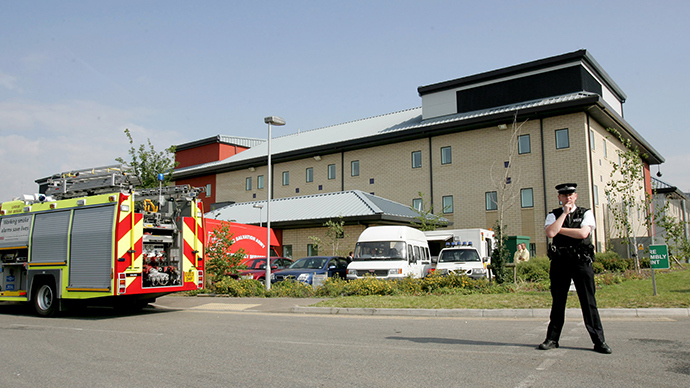Detention – message to migrants not to come?

Detention should not be used by the UK government as a legitimate way to undermine international obligations to protect people who might be fleeing violence and prosecution, Professor Heaven Crawley, UK migration policy expert, told RT.
RT:You have heard some of the detainees’ claims. Do you believe they are true? Is this a symptom of the failure of Britain's migration policy or just isolated cases?
Heaven Crawley: There are two problems here. One is that people are being detained when they are claiming asylum. So we have the system which can detain people at different stages of the immigration process. But we have in particular something called the Detained Fast Track (DFT) which is for asylum seekers who’ve just arrived. So at the beginning of the process before they have their cases heard properly, they can potentially be detained at that stage. And that means that there is a real concern among, not just asylum seekers, but lawyers and representatives that those cases are not being heard properly. And the second problem is we have what we call indefinite detention, there is no time limit. And so many people are concerned that once they find themselves in detention they’ve got no end point in sight… Most people stay in detention for a relatively short time between - anything up to around 4 months, which is still quite a long time if you are a detainee. In fact some people can stay in there considerably longer and that leads to frustration and anxiety about what will happen in the future.
READ MORE: Revealed: UK govt bans filming at immigrant detention center to avoid bad publicity
RT:Recent Home Office figures reveal 30,000 migrants are detained indefinitely every year in the UK. If the government seems to acknowledge the problem, why are changes so hard to come by?
HC: The issue of detention is nothing new in the UK. And you are right; we have one of the largest detention estates in the whole of Europe. So detention has very much been used not by this government alone but by the previous governments as a mechanism for managing migration, particularly for deterring people from coming, but also for dealing with then when they do. This is a strategy that has clearly been employed to manage migration. The problem is that when you have international obligations under refugee law to protect people, when you start to detain people indefinitely without any sense of justice in terms of their asylum claims then perhaps understandably people start to think the motivation for that detention is not just to manage migration but in a way to send a message to others not to come. And when we have an obligation under international refugee law then it becomes a little bit unsavory. So I think it’s really important to look at detention as a legitimate tool for governments to manage migration, but not in a way to legitimately undermine obligations to protect people who might be fleeing violence and prosecution.
READ MORE: ‘UK detention center is a prison’ – hunger striker’s relative
RT:It really does seem that some of the detainees are stuck between a rock and a hard place, some are concerned about indefinite detention and other are facing a prospect of being sent back to conflict zones where they say they are facing a possibility of death. What are the options for these people?
HC: It’s very difficult because one of the issues with DFT is that it applies only to nationals from certain countries. So certain countries have been ear -marked if you like as being predominantly safe in the eyes of the government. If you come from that country they consider that actually you haven’t got a very good claim for asylum. Some of those countries are countries in which certain groups may be at risk. We heard about Pakistan for example. Maybe some groups within that country - women, people from Christian or religious minority groups who may fear prosecution. But if you are from that country you will automatically go into DFT.
So yes those people are very much between a rock and a hard place because they feel that they haven’t got access to having their cases properly considered, that they have been, if you like, prejudged just by virtue of where they come from. And of course some of them have gone through the full asylum process but the Home Office is determined that they are not entitled to protection. And whilst I don’t want to go into a debate about the Home Office decision making process, there is a lot of criticism out there about the quality of that process particularly where people don’t have access to good legal advice which many people would say is really necessary to circumnavigate the very complex immigration procedures that we have.
MORE:
The statements, views and opinions expressed in this column are solely those of the author and do not necessarily represent those of RT.
The statements, views and opinions expressed in this column are solely those of the author and do not necessarily represent those of RT.












